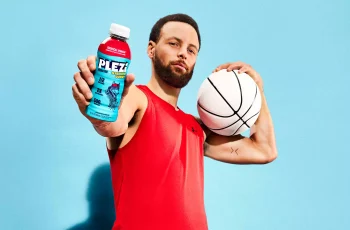Novo Nordisk’s diabetes medication Rybelsus has made headlines recently after a significant late-stage trial revealed its impressive cardiovascular benefits for those suffering from diabetes. The study, presented at the American College of Cardiology’s Annual Scientific Session in Chicago, established that Rybelsus lowers the risk of cardiovascular-related mortality, heart attack, and stroke by an average of 14% compared to those on a placebo over a period of approximately four years. This revelation not only reinforces the growing evidence supporting Rybelsus’s use in managing Type 2 diabetes but also solidifies its potential as a viable treatment option for patients with preexisting heart disease.

The Need for Alternative Delivery Mechanisms
The announcement is particularly exciting because it addresses a crucial gap in diabetes treatment—the reluctance of some patients to use injectable therapies. Many individuals dislike needles and often eschew injections, even when these treatments might lead to better health outcomes. The relatively simple and convenient oral formulation of Rybelsus, which is a daily pill, opens doors for patients who are hesitant to take injections. Stephen Gough, Novo Nordisk’s global chief medical officer, emphasized this need by stating, “We provide that option… depending on what the patients and the healthcare professional think is right.” This perspective marks a patient-centered evolution in diabetes care that acknowledges individual preferences and needs.
Understanding GLP-1 Agonists
Rybelsus, like its injectable counterpart Ozempic, contains semaglutide, which belongs to a class of medications known as GLP-1 receptor agonists. These drugs work by mimicking gut hormones that regulate blood sugar levels, suppress appetite, and reduce inflammation. Notably, in this trial of over 9,600 patients aged 50 and above, Rybelsus demonstrated a particularly striking effect in reducing the instances of non-fatal heart attacks—marking a 26% decrease compared to placebo groups. Such findings align with earlier results from other trials involving injectable forms of GLP-1s, thus suggesting that the cardiovascular benefits are not merely coincidental or limited to specific drug delivery mechanisms.
Implications for Future Research
The implications of this research extend beyond just Rybelsus as a treatment option. Other pharmaceutical companies, including Eli Lilly, are also venturing into the realm of oral GLP-1s, influenced by Rybelsus’s promising findings. This competition may spur innovation and result in more diverse treatment options for patients suffering from diabetes and its comorbidities. As research continues to underline the safety and efficacy of these medications, there may be a significant shift in how diabetes and cardiovascular health are approached.
Examining Side Effects and Safety Profiles
Interestingly, while Rybelsus showcases beneficial effects on cardiovascular health, the most frequently reported side effects tend to be gastrointestinal in nature. Symptoms like nausea, diarrhea, and constipation often accompany GLP-1 therapies but rarely lead to discontinuation of treatment. The FDA’s approval pathway for Rybelsus, which also requires patients to take the medication on an empty stomach for optimal absorption, raises questions about adherence. However, the trial’s results serve to reassure us that most patients can follow guidelines effectively and still reap significant cardiovascular benefits.
The Bigger Picture of Diabetes Management
One cannot overlook the overarching public health crisis represented by diabetes and its associated complications, such as heart disease. With cardiovascular events being a leading cause of morbidity and mortality in diabetic patients, the introduction of Rybelsus not only enriches treatment options but also highlights an urgent need for integrated care strategies. The advent of a well-tolerated oral solution could inevitably lead to better health outcomes and a reduction in healthcare costs associated with these chronic conditions.

The advancements surrounding Rybelsus are a testament to pharmaceutical innovation’s capacity to reshape patient experience and outcomes. As the medical community becomes increasingly aware of the complexities involved in treating diabetes—particularly with respect to the fear of needles—Rybelsus’s role may expand, positioning it as a crucial component in the holistic management of diabetes alongside cardiovascular health.

